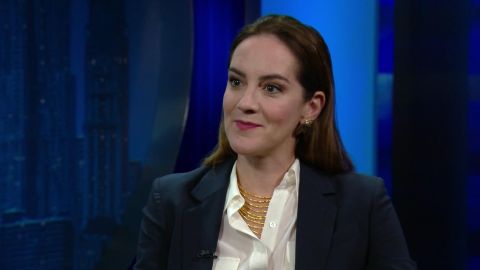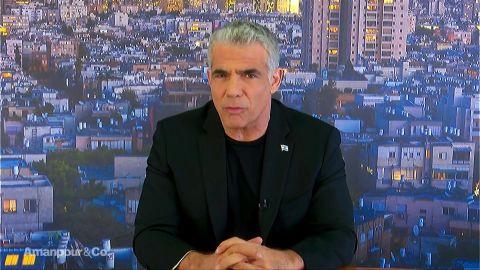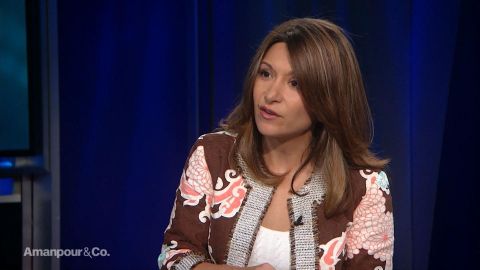Read Transcript EXPAND
AMANPOUR: What do you think is happening here?
NAYERI: Well, what’s happening is he’s trying to separate, you know, people who, you know, came from somewhere else, from native Americans, native-born Americans. What he wants to do is say that, you know, “You don’t have as much of a right to talk about the issues, to be a part of the political process, you know, and to be a part of our country. So, you should be second-class citizens. Always quiet, bow and grateful.” And I think it plays to his base. I mean, the term ungrateful refugee is not new. It’s — I’ve heard it when I was a child. When I was a child, you know, people told me all the time, you know, “Oh, you must be so grateful or, you know, of course, why don’t you go back where you came from when,” when they were angry.
AMANPOUR: Did you have a lot of that? I mean, I wanted to get to your book because, you know, it is called “The Ungrateful Refugee.” And I kind of wanted to ask you, you said it’s not new, but where did it come from in your experience? You left Iran as a kid.
NAYERI: Yes.
AMANPOUR: To escape the Islamic revolution. Your mother was —
NAYERI: And the war.
AMANPOUR: — a Christian. And the war with Iraq, exactly. And there was persecution against her.
NAYERI: Yes.
AMANPOUR: She was a doctor then. Just describe a little your exodus, if you like, and your arrival in America.
NAYERI: So, we escaped to Dubai. My mom was in a lot of trouble with the Islamic Republic and we went to Dubai. We were there as undocumented immigrants for, you know, 10 months and then we became refugees. We were sent to a refugee camp in Italy and stayed there for six months before we were given asylum in America and sent to Oklahoma.
AMANPOUR: What did you meet when you got to Oklahoma? What sort of reception?
NAYERI: Well, you know, it was interesting. It was different from what people are getting now in a couple of ways. You know, first of all, I think there was a certain level of welcome because we were Christians and, you know, there was a certain sense of duty that as an American they had to — or, you know, I suppose people had a duty to the world. You know, and we were some of the outcasts of the world and so, they had to take us in. But on a personal level, there was definitely hostility. There was definitely a sense that, you know, we don’t quite belong here and that we should participate in a different way than, you know, Americans do. We shouldn’t aspire toward leadership or any kind of greatness. You know, we should just kind of be on a lower rung of society.
AMANPOUR: I was stuck by how you said that you landed in Oklahoma and it quickly became obvious to you that there hadn’t been a huge amount of interface between the people who were your neighbors and people around the rest of the world. And you said that they — you used the term “ching-chongese.”
NAYERI: Yes.
AMANPOUR: A the way they talk to your mother. What’s all that to you?
NAYERI: To me, at school, I mean, I think — what’s interesting was that they didn’t even have much of a sense of the geography or what was going on, you know, in the world. That they literally would ching-chong at me as a —
AMANPOUR: Meaning what, just thinking you were Chinese or Asian?
NAYERI: Yes. Exactly, exactly.
About This Episode EXPAND
Christiane Amanpour speaks with Yair Lapid about the future of Israeli politics. Dina Nayeri joins the program to discuss the “Send Her Back” chants at a Trump rally in North Carolina. Hari Sreenivasan sits down with Amanda Little to discuss her new book, “The Fate of Food: What We’ll Eat in a Bigger, Hotter, Smarter World.”
LEARN MORE


